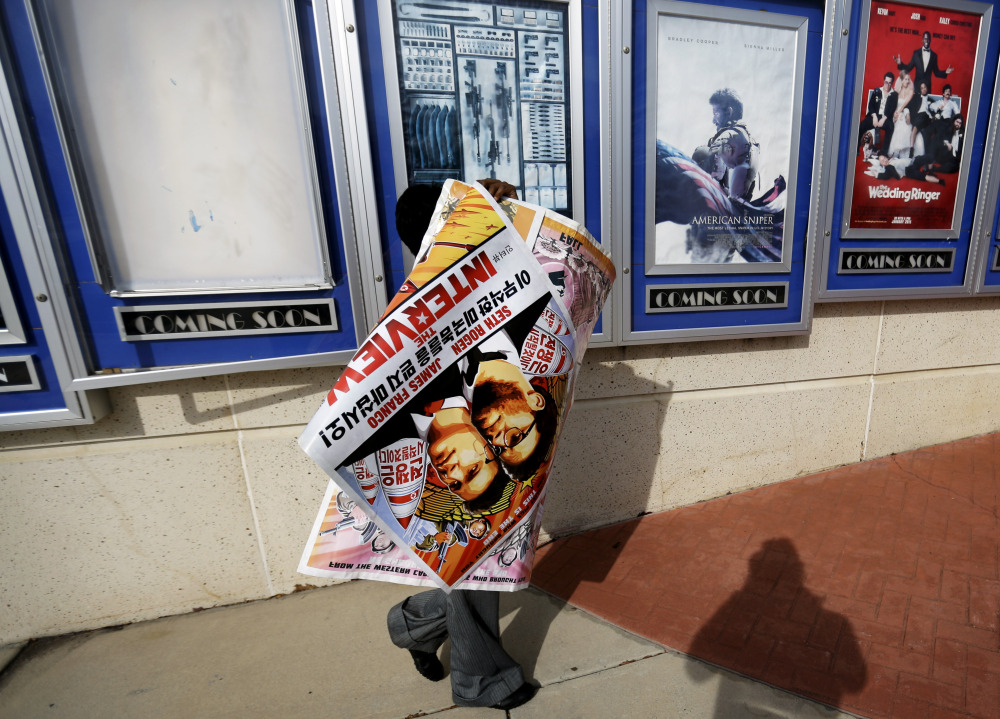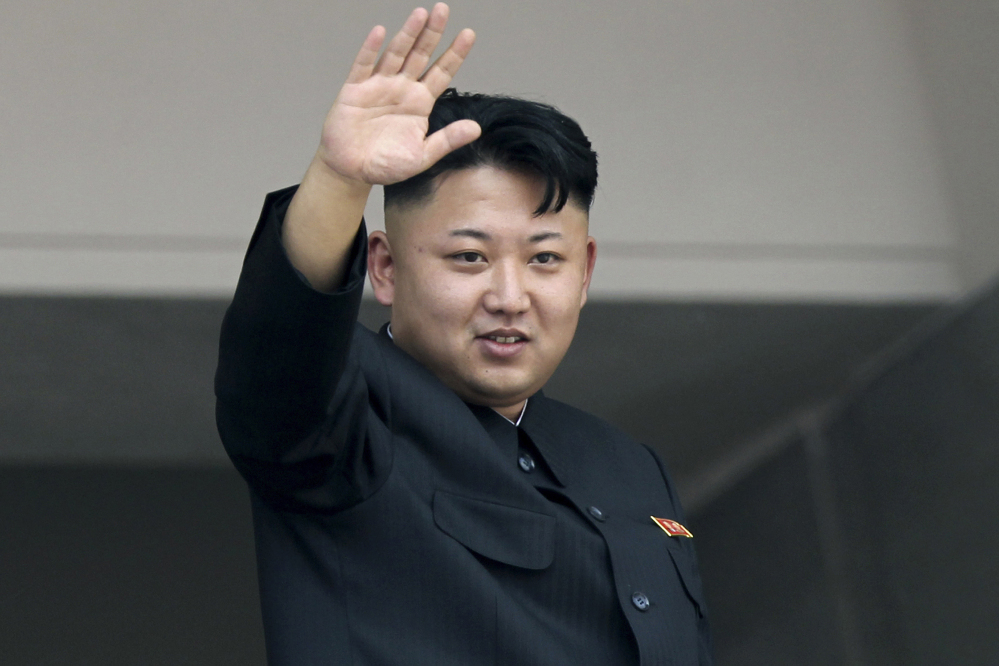TOKYO — If the U.S. government’s claim is correct that North Korea was involved in the unprecedented hack attack on Sony Pictures that scuttled Seth Rogen’s latest comedy, no one can say they weren’t warned. The movie, “The Interview,” pushed all of North Korea’s buttons.
No country would welcome a movie portraying the glib and graphic assassination of its leader.
But nowhere could it be expected to generate more official outrage and possible reprisals than in North Korea, home to the world’s most intense cult of personality, where even the hint of criticism of the ruling Kim dynasty can mean a long stint in prison and where it’s a serious offense to merely crumple up a newspaper with any of the leaders’ images.
North Korea’s reaction to “The Interview” was swift and loud.
In June, it warned there would be severe repercussions for anyone involved in the film, which portrays the assassination of Kim Jong Un for the CIA by two American journalists. When rumors began to circulate that North Korea was behind the hack, it was quick to deny it ordered the attack, but suggested it was a “righteous deed” carried out by sympathizers.
Strengthening suspicions that North Korea’s involvement might have been deeper, a U.S. official said Wednesday that federal investigators have connected the hacking to the North. A security professional with knowledge of the breach said investigators had strong circumstantial evidence and technical commonalities pointing to North Korea. Both spoke on condition of anonymity because they were not authorized to discuss an ongoing investigation.
U.S. PLOTS RESPONSE
Bernadette Meehan, National Security Council spokeswoman, said the United States was “considering a range of options” in response.
Though Washington has yet to officially lay out its case, Hajime Izumi, a leading Japanese expert on North Korea and a professor at Shizuoka University, said the film crossed a red line for North Korea because it struck at the country’s biggest taboo: criticism of its supreme leader. Suppression of such criticism is vital to the very survival of the regime.
“They can’t allow that,” he said. “I think their response was fairly predictable.”
Mockery of North Korea’s leaders in the West is hardly new or unusual. A decade ago, the musical farce “Team America: World Police” had Kim’s father, Kim Jong Il, turning into a cockroach.
Viral Kim memes are rife on the Internet and Hollywood has in recent years turned to North Koreans as the villains de jour. The 2012 remake of “Red Dawn” and last year’s “Olympus Has Fallen” were both about North Korean attacks on the United States.
North Korea has not always taken the bait: “Team America” got a rather toothless response. Izumi said its more furious reaction to “The Interview” could suggest a growing lack of confidence in its ability to keep illegal copies of foreign movies from being smuggled across its borders and viewed by ordinary North Koreans.
Further, because the film didn’t merely mock Kim Jong Un but portrayed his assassination, North Korea might have felt the need to respond with more than words.
CYBERATTACK LESS PROVOCATIVE
A cyberattack, harder to trace and less likely to provoke a direct response than, for instance, bombing a theater, would be a powerful but less risky means of sending a message that North Korea does not want to be taken lightly, whether it be over the portrayal of its leader or any perceived threat to its regime. And a severe response from Washington is unlikely because North Korea is already subject to heavy international sanctions.
Even if North Korea is not to blame for the hacking, as it contends, the perception that it is capable of such an attack is a win for the regime.
North Korea, isolated and still technically at war with the United States, has more than its share of hot-button issues.
Vitriolic outbursts of rage against the United States, South Korea and Japan have for decades been a mainstay of North Korea’s state-run media, along with endless praise of the Kims – national founder Kim Il Sung, his son Kim Jong Il and now Kim Jong Un – as leaders who enjoy the undying love and devotion of their nation.
But since Kim Jong Un assumed power in late 2011, North Korea has responded with what some U.S. officials have called “hyper-reactions” in several standoffs with Washington, including a rapid escalation of tensions following its rocket launch and nuclear test last year and, over the past couple of months, a U.N. resolution that could in theory open the door for its leaders – including Kim – to be hauled before the International Criminal Court for crimes against humanity.
The feeling is that North Korea’s ruling regime, wary of what it sees as an effort by the U.S. to test the relatively young and inexperienced Kim Jong Un, has been overcompensating to demonstrate its unwillingness to be cowed or coerced.
“I don’t think they would have reacted this way to a movie in the days of his father,” said Izumi.
Send questions/comments to the editors.




Success. Please wait for the page to reload. If the page does not reload within 5 seconds, please refresh the page.
Enter your email and password to access comments.
Hi, to comment on stories you must . This profile is in addition to your subscription and website login.
Already have a commenting profile? .
Invalid username/password.
Please check your email to confirm and complete your registration.
Only subscribers are eligible to post comments. Please subscribe or login first for digital access. Here’s why.
Use the form below to reset your password. When you've submitted your account email, we will send an email with a reset code.